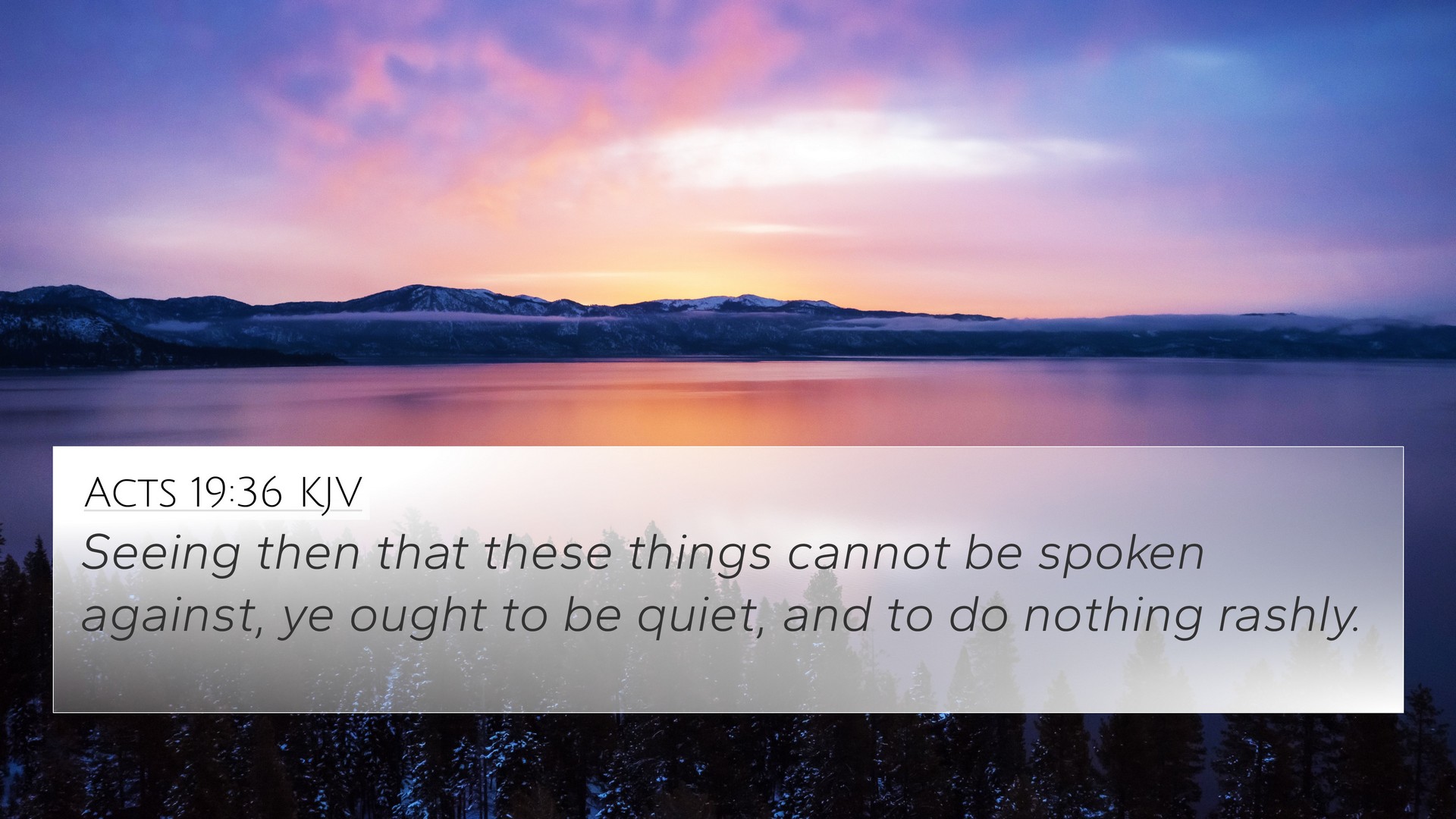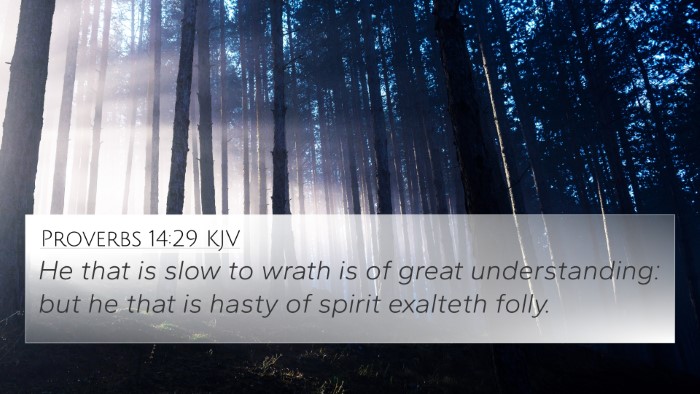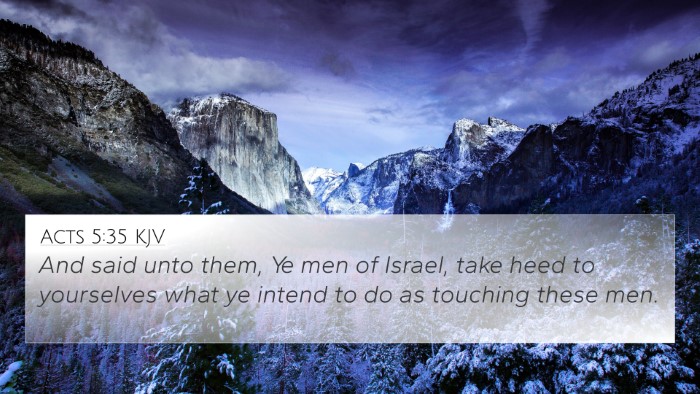Meaning of Acts 19:36
This verse is found in the book of Acts, specifically in the narrative of the Apostle Paul's ministry in Ephesus. It occurs amidst a tumultuous uproar stirred by the silversmiths who felt threatened by the success of Paul's preaching. To fully appreciate its meaning, we can gather insights from various public domain commentaries.
Context of Acts 19:36
Acts 19:36 states: "Seeing then that these things cannot be spoken against, ye ought to be quiet, and to do nothing rashly." Here, the speaker is urging moderation and calmness in light of the chaos created by the craftsmen. The phrase underscores the importance of rational discourse over mob action.
Commentary Insights
-
Matthew Henry:
Henry emphasizes the admonition for calmness amidst disorder. He highlights that the speaker, likely the town clerk, is trying to steer the crowd away from irrationality and encourages them to acknowledge the truth of their situation. This teaches about the value of wisdom and rationality in times of chaos.
-
Albert Barnes:
Barnes details how this verse reflects a crucial moment in legal proceedings and civic responsibility. He indicates that the speaker recognizes the larger implications of the uproar for the city's governance and the potential repercussions if order is not restored, illustrating the intersection of faith and civic duty.
-
Adam Clarke:
Clarke points to the importance of recognizing that actions must align with constitutional principles, specifically cautioning against the dangers of rash judgments and decisions that arise out of panic. He discusses how this advice holds relevance even in contemporary discourse, particularly in the church's interactions with society.
Thematic Connections
Acts 19:36 illustrates themes of order, wisdom, and rationality amidst chaos. It emphasizes the Christian approach to conflict resolution—through calmness and sensible dialogue, rather than through escalation. This calls to mind several pertinent cross-references:
- Proverbs 15:1: "A soft answer turns away wrath, but a harsh word stirs up anger."
- James 1:19: "Know this, my beloved brothers: let every person be quick to hear, slow to speak, slow to anger."
- Philippians 4:5: "Let your reasonableness be known to everyone. The Lord is at hand."
- 1 Peter 2:12: "Keep your conduct among the Gentiles honorable, so that when they speak against you as evildoers, they may see your good deeds and glorify God."
- Proverbs 29:20: "Do you see a man who is hasty in his words? There is more hope for a fool than for him."
- Matthew 5:9: "Blessed are the peacemakers, for they shall be called sons of God."
- Ecclesiastes 3:7: "A time to tear, and a time to sew; a time to keep silence, and a time to speak."
- Colossians 3:15: "And let the peace of Christ rule in your hearts, to which indeed you were called in one body. And be thankful."
- 2 Timothy 2:24: "And the Lord's servant must not be quarrelsome but kind to everyone, able to teach, patiently enduring evil."
- Romans 12:18: "If possible, so far as it depends on you, live peaceably with all."
Practical Applications
Understanding Acts 19:36 encourages a thoughtful approach to conflict. Here are some practical applications drawn from the verse and its commentaries:
- Promote Peace: Engage in dialogue that fosters understanding rather than division.
- Exercise Wisdom: Choose your words carefully and avoid making hasty conclusions or statements.
- Uphold Civility: Treat others with respect, especially in heated discussions.
- Seek Truth: Always strive to base opinions and actions on established facts and divine wisdom.
- Encourage Dialogue: Foster open conversations within community settings to address issues amicably.
Conclusion
Acts 19:36 serves as a reminder of the importance of calmness and reason in times of turmoil. By evaluating this verse and its cross-references, we can gain insights into how the principles of moderation, wisdom, and peace can be applied in our lives. The connections between Bible verses further enhance our understanding of biblical teachings, offering a framework for navigating conflict within our communities and personal lives.





